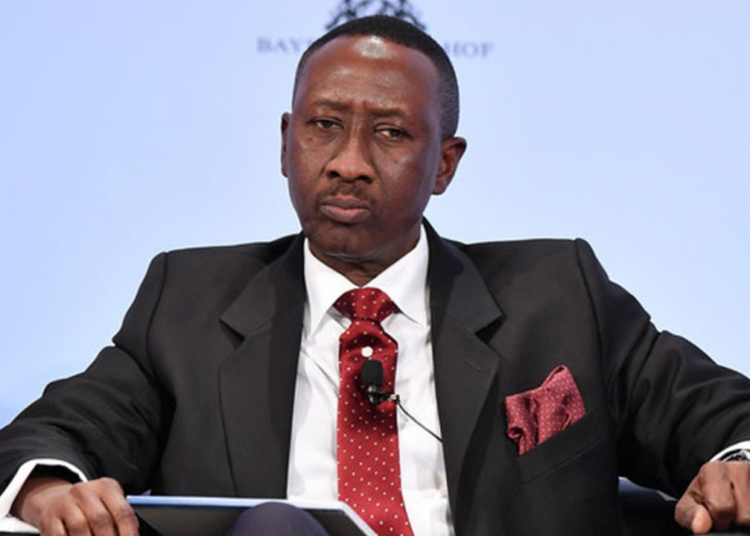Nigeria’s top security chiefs have advised incoming governors to avoid the mistakes of their predecessors by focusing on good governance, poverty, unemployment and early warnings.
The national security adviser (NSA), Gen Babagana Munuguno (rtd); the director-general of the Department of States Services (DSS), Bichi Mogaji, and the inspector-general of police (IGP), Usman Alkali Baba, gave the warning in Abuja at a roundtable discussion during the 2023 induction for re-elected and elected governors.
Speaking at induction with the theme, “Governing for Impact (Building Sub-national Governance), organised by the Nigeria Governors’ Forum (NGF) at the Presidential Villa, the NSA who was represented by Joseph Dahwuep appealed to the incoming governors to adopt good governance as a policy, as part of the security issues in the states are fallouts of some of the policies from the states.
He also advised that the governors form inclusive cabinets and not stereotype any group as opposition to their administration.
Monguno said, “Elections are over; this is the time for good governance. Please endeavour to ensure an inclusive government to enable you to have good governance at the state level.
“Nigeria is not an exception to the insecurity. Insecurity is a global item now. Security includes good governance and human rights of all. Security includes reducing poverty and unemployment at the state levels. Without security, there won’t be security.”
Giving an overview of the security situation, the NSA said tackling insecurity involves both kinetic and not kinetic measures, advising that it is easier to manage insecurity by listening to early warning signs from stakeholders.
He urged the governors-elect to identify the stakeholders in their respective states and make adequate use of them, while encouraging a feedback mechanism by always answering call a placed to them
On conflict management and resolution, the NSA called on the governors to use intelligence reports and management of early warnings.
The NSA told the incoming governors to bear in mind that crimes and criminal activities have been digitised and, therefore, develop a system that works for all, as such a system will work for all of them.
In his advisory, the DG of DSS called on the new governors to always work on early warnings and endeavour to go through reports presented to them by their special aides.
He gave an instance of a state in 2003 where a sitting governor lost election because he failed to listen to the report of scarcity of water, while his opponent saw the report and used water tankers to provide water to the community and at the election, the governor lost.
He also urged the governors to listen to traditional rulers and informants, asking them to pay attention to where people who don’t speak their languages or dialect enter their towns or state, adding that they should find a way to find out who they are.
The DSS boss said kinetic force is not the best, but the use of dialogue and listening before a crisis.
He also appealed to the incoming governors to always be accessible to all citizens, noting that they are governors to all and not a few.
Also, IGP Baba who was represented by an assistant inspector-general of police, Gala Ciroma, called on the governors-elect to endeavour to reduce poverty and unemployment as an angry man is a hungry man.
The police boss urged them to be technology efficient and criminals now use telephones and other technological equipment in their dangerous trade.
Also at the event, Anambra State governor, Charles Soludo, lamented the dysfunctional nature of the national security architecture.
Soludo lamented the disproportionate burden placed on state governments while lacking the resources to combat the rising insecurity.
He also stressed the need for local action to address the rising insecurity in the country.
He said, “But let me just go spend quite a lot of time talking about intelligence gathering kinetic and non-kinetic approaches and so on and how it happens. But my central point here is that security or insecurity is largely a local issue.
“Every locality has its own peculiarities and the most fundamental issue. I think for those of us who are governors, and the governors-elect, a major concern that we need to get onto is the national security architecture.
“And the moderator aptly pointed that out, placing much of the kinetic architecture almost exclusively on the shoulders of the federal government.”
On his part, Imo State governor, Hope Uzodinma, echoed the sentiments of Soludo, regarding the need for a collaborative approach to tackling security challenges in Nigeria.
Governor Uzodinma emphasised the importance of clearly defining the roles and responsibilities of both state and federal governments in maintaining security across the country.
Uzodinma said Nigeria consists of 36 states, including the Federal Capital Territory (FCT), and the president, as the commander-in-chief, holds the ultimate responsibility for security provision and management in the country.
He stressed that state governors should acknowledge the successes achieved by the federal government’s security architecture, while also taking responsibility for any failures.
To address the prevailing security challenges in the states, Governor Uzodinma stressed the need for a collaborative approach where governors contribute their ideas, taking into account their respective states’ unique security peculiarities.
The governor called for a strengthened relationship between various security agencies at the state level.
We’ve got the edge. Get real-time reports, breaking scoops, and exclusive angles delivered straight to your phone. Don’t settle for stale news. Join LEADERSHIP NEWS on WhatsApp for 24/7 updates →
Join Our WhatsApp Channel










